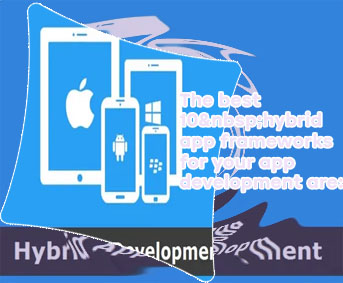
Hybrid app development
We are RubyGarage - Ruby on Rails Development Team from Ukraine
No matter the complexity of the application, a hybrid mobile application would still have to go through the regulations of the Google Play Store or the App Store. The main focus must be on the user experience, as hybrid apps cannot entirely mimic the feel of native apps. Making sure that the app follows the publishing and regulations criteria of the app stores by utilising third-party tos and native features whenever possible can make a better impression when the app is assessed by store regulators. Hybrid application development Comparing hybrid versus native apps, it's worth mentioning that updates containing bug fixes and enhancements are implemented way better in hybrid applications. At least from the point of user experience. Users don’t have to download the latest version of your app manually through marketplaces to eliminate an irritating bug that suddenly appeared some time ago. This is a pretty common situation in the IT industry, and hybrid applications are more flexible in this regard.
Hybrid mobile app languages
So, what is the right choice for your application? Unless you are creating a highly performant game or other similar application, hybrid mobile app development might be the right choice because it offers an easier development approach, cost savings, and compatibility across a variety of platforms. While they do require a bit more understanding to mesh the solution together, as well as the use of a UI library to assist in the proper presentation of your user interface, those challenges are known and can be easily solved with the right hybrid mobile app development framework, like Ionic. Not good for high performance Hybrid applications features include the following:

What are Hybrid Apps?
The process for finding developers for native and hybrid apps is more or less the same except for one major difference. If you decide to build two native apps, you will likely need 2 developers as most specialize in only one platform. Build Hybrid Mobile Apps! So what’s the problem? Finishing it. Usually, in software development the last 10% of the project requires 90% of the work. It’s really easy to build something functional compared to building something polished, bug free that can compete in the marketplace. The crucial features are developed in the last 10%. This is where hybrid falls behind. Allow me to explain.
Make hybrid app
Hybrid app development suggests building a single code bar for two platforms. Thanks to specific tools, it is possible to create communication between the platform and the web view, making hybrid apps feel like a native one. What Are the Most Popular Hybrid App Development Tools? 3. Overall Development Cost: Out of the three options, Hybrid app development is the cheapest. For Native app development, business organizations would require hiring specialized talent which would cost a lot. Since hybrid app development is a perfect mix of both native and web apps, it has an easier learning curve for the developers. Therefore, even rookie mobile app developers can understand the development process and implement it.

